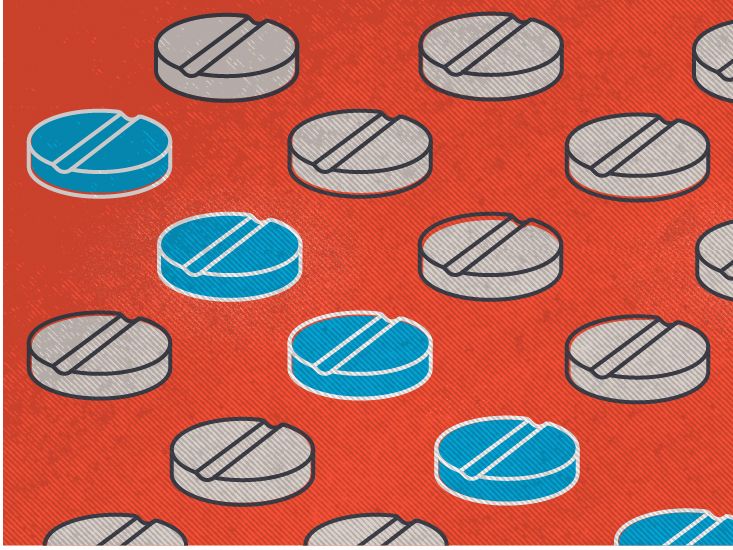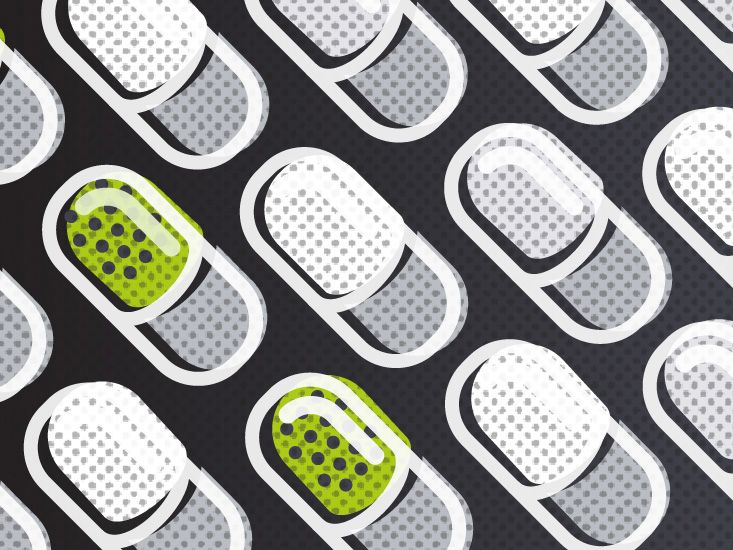Can Vyvanse Cause or Worsen Tinnitus?
Vyvanse is a stimulant medication that is commonly prescribed to treat attention deficit hyperactivity disorder (ADHD). It works by increasing levels of dopamine and norepinephrine in the brain to improve focus and concentration.
Tinnitus is the perception of noise or ringing in the ears when no external sound is present. It affects about 15-20% of people and can significantly impact daily life.
Some research has linked stimulant medications like Vyvanse to tinnitus symptoms. Here is what you need to know about the relationship between Vyvanse and tinnitus.
How Vyvanse May Impact Tinnitus
Vyvanse may worsen or trigger tinnitus through its effects on dopamine levels in the brain. Dopamine is one of the key neurotransmitters implicated in tinnitus.
Specifically, increased dopamine activity and overstimulation of D2 dopamine receptors may enhance abnormal nerve signaling between the inner ear and auditory cortex - the main mechanisms behind tinnitus.
As a stimulant, Vyvanse boosts dopamine activity throughout the brain. For those predisposed to tinnitus, this dopamine surge may push their auditory system over the threshold to generate perceptual noise.
Studies Investigating the Link
Limited research has directly examined the relationship between Vyvanse and tinnitus:
- A 2016 case study described sudden bilateral tinnitus in a 39-year-old man after starting Vyvanse treatment for ADHD. Tinnitus persisted even after Vyvanse cessation.
- A survey study found a higher prevalence of tinnitus and hyperacusis (noise sensitivity) in adults taking stimulants like Vyvanse compared to non-stimulant ADHD medications.
- Anecdotal reports of tinnitus emerging after initiating Vyvanse can be found on patient forums and in online reviews. However, these are not scientifically conclusive.
Individual Factors Influencing Risk
Not everyone who takes Vyvanse will experience tinnitus side effects. Some factors that may increase risk include:
- Preexisting tinnitus - Those who already have chronic tinnitus may notice worsening of symptoms with Vyvanse.
- High Vyvanse doses - Taking Vyvanse at higher than recommended doses elevates dopamine more significantly.
- Underlying conditions - Inner ear damage, hearing loss, neurologic disorders may predispose some people to tinnitus.
- Age - Older adults may be more susceptible to medication-induced tinnitus.
- Genetics - Variations in dopamine receptor genes could influence tinnitus risk.
Strategies to Reduce Risk of Tinnitus
If you are concerned about Vyvanse worsening or triggering tinnitus, here are some precautions you can take:
- Start with a low dose and increase slowly as needed.
- Do not exceed recommended maximum daily dose (typically 70 mg for adults).
- Take breaks from Vyvanse occasionally (such as on weekends).
- Drink plenty of water to stay hydrated and support inner ear function.
- Limit caffeine intake as it may enhance Vyvanse side effects.
- Practice stress management since anxiety can worsen tinnitus.
- Get enough sleep and rest between Vyvanse doses.
- Report new tinnitus or changes in existing tinnitus to your doctor promptly.
Coping With Tinnitus Caused by Vyvanse
If you do experience new onset or worsening tinnitus with Vyvanse, here are some tips for managing symptoms:
- Lower your Vyvanse dose under your doctors supervision and see if tinnitus improves.
- Consider switching to a non-stimulant ADHD medication like Strattera if tinnitus persists.
- Use background noise like fans or white noise machines to mask the tinnitus perception.
- Try tinnitus-retraining therapy (TRT) or cognitive behavioral therapy (CBT).
- Reduce anxiety and stress through relaxation techniques like yoga and meditation.
- Protect your hearing from loud noise exposure that could worsen tinnitus.
- Join a tinnitus support group to help cope with the condition.
The Effects of Vyvanse on the Body
Vyvanse is the brand name for the medication lisdexamfetamine dimesylate. It belongs to the stimulant class of drugs and is a prodrug of dextroamphetamine.
Vyvanse works in the body and brain to treat ADHD symptoms by increasing levels of certain neurotransmitters like dopamine and norepinephrine. This stimulant effect directly or indirectly impacts many parts of the body.
How Vyvanse Works in the Brain
Vyvanse's primary mechanism of action relies on its influence on catecholamine neurotransmitters in the brain:
- Increases dopamine signaling - Provides more dopamine to interact with receptors and improve motivation, attention, focus.
- Increases norepinephrine - Boosts alertness, arousal, vigilance, and cognitive control.
- May increase serotonin later in treatment - Helps regulate mood, anxiety, irritability.
Vyvanse also activates the sympathetic nervous system, causing downstream effects on various bodily processes influenced by the "fight or flight" system.
Effects on the Heart and Circulatory System
The increase in norepinephrine from Vyvanse often raises blood pressure and heart rate. Vyvanse may also constrict blood vessels and increase circulation to muscles.
These cardiovascular effects provide the extra energy and oxygenation needed for improved concentration and focus. But they can also increase the risk of high blood pressure and abnormal heart rhythms in some people.
Digestive System Effects
Vyvanse can decrease appetite since dopamine is involved in hunger signaling. Nausea, stomach pain, and diarrhea are possible digestive side effects.
Vyvanse relies on enzymes in the GI tract to convert it into dextroamphetamine to become active. So digestion impacts how quickly the medication takes effect.
Impact on Sleep Cycles
The stimulating effects of Vyvanse tend to disrupt normal sleep cycles. Many people have difficulty falling asleep at night or experience less restful sleep while taking Vyvanse.
Trouble sleeping may also result indirectly from Vyvanse wearing off in the evening. The come-down can cause symptoms like fatigue, irritability, and anxiety.
Other Possible Side Effects
In addition to the effects discussed above, Vyvanse may cause:
- Dry mouth
- Sweating
- Headache
- Weight loss
- Anxiety or irritability
- Nasal congestion
Rare but serious reactions include heart attack, stroke, hallucinations, seizures, and euphoric or dangerously reckless behavior.
Is Vyvanse Considered Safe?
When taken as prescribed under a doctor's supervision, Vyvanse is generally considered a safe medication for treating ADHD. Here is some information about its safety profile:
FDA Approval and Oversight
The U.S. Food and Drug Administration (FDA) approved Vyvanse in 2007 for ADHD treatment in children ages 6-12 years old. Approval was expanded in 2008 to include adults.
Like all medications on the U.S. market, Vyvanse continues to be closely monitored by the FDA for adverse events and potential safety issues.
Controlled Substance Classification
Vyvanse contains the active ingredient lisdexamfetamine, which is a stimulant and controlled substance. Vyvanse is classified as a Schedule II controlled substance by the U.S. Drug En
FAQs
Can Vyvanse cause tinnitus?
Yes, there is some evidence that Vyvanse may trigger the onset of tinnitus or worsen existing tinnitus in certain individuals due to its effects on dopamine activity in the brain.
Who is most at risk for tinnitus from Vyvanse?
Those with preexisting tinnitus, high Vyvanse doses, older adults, underlying medical conditions, and genetic factors may have the highest risk of experiencing tinnitus from taking Vyvanse.
What should I do if Vyvanse causes tinnitus for me?
Speak to your doctor about lowering your Vyvanse dosage or switching to a different ADHD medication. Coping strategies like sound therapy, stress reduction, and therapy can also help manage tinnitus.
Can stopping Vyvanse cure tinnitus it caused?
In some cases, tinnitus induced by Vyvanse may go away after stopping the medication. But in other cases, tinnitus can persist even after Vyvanse cessation.
Are there ways to prevent tinnitus with Vyvanse?
Strategies like starting with a low dose, staying hydrated, limiting caffeine, wearing hearing protection, and controlling stress may help lower the risks of developing tinnitus with Vyvanse.
Disclaimer: This article is for informational purposes only and does not constitute medical advice. Always consult with a healthcare professional before starting any new treatment regimen.
Related Coverage
Excessive fiddling during meals can indicate issues like ADHD or anxiety in kids. Learn techniques to curb constant fidgeting and toys with for peaceful mealtimes....
ADHD involves challenges with focus, impulsivity, and managing behavior. Healthy lifestyle habits, treatment plans, and good sleep hygiene can provide relief....
Magnesium for ADHD may boost focus, calm restlessness, and improve sleep. Learn safe dosages, benefits, risks, and top food sources....
Neurodivergent school stress is real and overwhelming. These students face twice the emotional burden—schools must respond with empathy and change....
Daytrana side effects such as skin irritation, insomnia, and appetite loss can be eased with timing, placement, and diet tips....
See how Concerta works to improve focus and manage ADHD symptoms by balancing key brain chemicals for up to 12 hours....
Learn what Mydasis side effects feel like, which are common, how to manage them, and when to seek medical help....
Learn how long Adderall stays effective for ADHD symptoms with immediate and extended release forms. Get tips for timing doses and minimizing ongoing side effects....
The ongoing Vyvanse shortage in 2023 is making access difficult. Discover possible causes, alternative ADHD medications, and tips for conserving your supply....
Learn how ADHD medication kids boost focus, proper dosing, benefits, risks, and safe monitoring tips—all in one easy guide....









